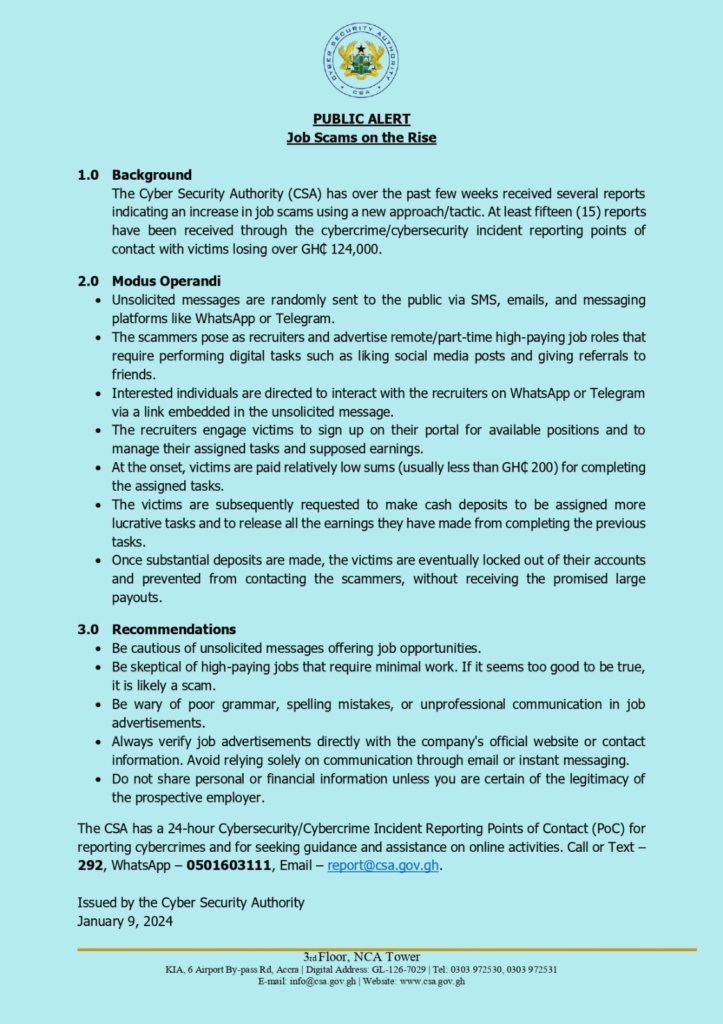
By Joshua Worlasi AMLANU & Ebenezer Chike Adjei NJOKU
Robust security measures and minimal transaction costs will be critical for successful adoption of the first central bank digital currency (CBDC) – the eCedi – according to findings from the Bank of Ghana’s (BoG) recently concluded pilot programme.
The central bank’s pilot, which tested the digital currency across urban, peri-urban and rural locations, revealed significant implementation challenges as it moves closer to rolling out the eCedi.
The findings emphasise need for stringent cybersecurity protocols and cost-effective transaction structures to ensure widespread adoption.
The eCedi, designed as a digital version of the national currency, aims to complement physical cash while enhancing financial inclusion and modernising existing payment systems.
However, stakeholder feedback suggests that public trust and fee considerations could significantly influence adoption rates.
BoG Governor Dr. Ernest Addison stressed the development’s importance, stating: “The field pilot’s result – which is the subject of this document – indicates the importance of establishing clear objectives for a central bank digital currency, the value of collaboration among stakeholders and the need to preserve the financial services industry’s architecture without compromising the needed change for improvements.
“The document highlights key considerations for undertaking a CBDC pilot and some success factors. Ultimately, implementing CBDC – despite the valuable insights this document presents – will require additional considerations; including internal capacity development, stakeholder engagement and incentive schemes as well as alignment with stakeholder expectations and aspirations,” he said.
The pilot successfully tested offline transactions at Sefwi Asafo, a rural area with limited telecommunications infrastructure; demonstrating the technology’s viability in underserved regions.
The central bank’s report noted that “an extremely high level of service availability and responsive support services are essential for widespread adoption”.
Security emerged as a paramount concern during the testing phase.
The findings showed that “robust security of eCedi infrastructure” will be crucial for building and maintaining public confidence in the system, particularly among users familiar with existing digital payment systems like mobile money.
Cost considerations featured prominently in stakeholder feedback, with the report noting: “eCedi charges, if any, should be insignificant to encourage usage”.
This reflects concerns from merchants operating on narrow profit margins and resonates – particularly given market response to the e-levy introduction in 2022.
The pilot demonstrated that accessibility across both online and offline platforms will be essential for widespread adoption.
“Offline and online eCedi solutions, as well as support services, should be available across the country to make it truly inclusive; thus serving as a suitable complement to cash,” the report stated.
The regulator acknowledged that substantial work remains before full implementation can proceed. The central bank plans to focus on scaling technological infrastructure, enhancing security protocols and aligning with industry stakeholders.
Public education will play a crucial role in the currency’s successful rollout. According to the report: “Extensive and intensive public education and awareness programmes are needed to enhance understanding of the eCedi among the general population prior to implementation”.
Earlier this year, the central bank announced that it was collaborating with its Singapore counterpart in a cross-border CBDC pilot aimed at facilitating trade between small and medium-sized enterprises (SMEs) of both countries.
The project, part of th eCedi initiative and Singapore’s use of stablecoins, integrates digital tools like verifiable credentials and purpose-bound money to enhance financial transactions.
The first phase establishes a financial trust corridor, allowing vetted SMEs to trade securely. The second phase introduces universal trusted credentials to verify businesses’ information. Additionally, purpose-bound money ensures loans issued in eCedi are used as intended, improving repayment rates. The initiative is exploring programmable payments across multiple digital currencies and has drawn interest from Rwanda for future participation.
It builds on Ghana’s broader efforts in digitalisation, including previous trials using distributed ledger technology.
Already, a recent study by Juniper Research – a leading authority in fintech and payments – predicts that the annual value of CBDC transactions will increase from US$100million in 2023 to US$213billion by 2030.
The post Security, cost concerns critical for eCedi rollout appeared first on The Business & Financial Times.
Read Full Story



















Facebook
Twitter
Pinterest
Instagram
Google+
YouTube
LinkedIn
RSS